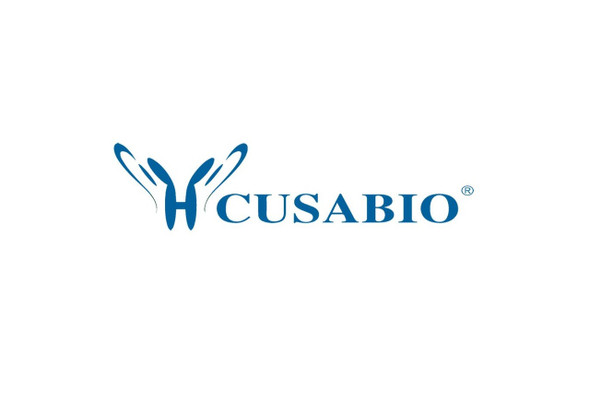Cusabio Human Recombinants
Recombinant Human Receptor-type tyrosine-protein phosphatase-like N (PTPRN), partial | CSB-YP613703HUf3
- SKU:
- CSB-YP613703HUf3
- Availability:
- 25 - 35 Working Days
Description
Recombinant Human Receptor-type tyrosine-protein phosphatase-like N (PTPRN), partial | CSB-YP613703HUf3 | Cusabio
Alternative Name(s): Islet cell antigen 512 Short name: ICA 512 Islet cell autoantigen 3 PTP IA-2
Gene Names: PTPRN
Research Areas: Signal Transduction
Organism: Homo sapiens (Human)
AA Sequence: VSAHGCLFDRRLCSHLEVCIQDGLFGQCQVGVGQARPLLQVTSPVLQRLQGVLRQLMSQGLSWHDDLTQYVISQEMERIPRLRPPEPRPRDRSGLAPKRPGPAGELLLQDIPTGSAPAAQHRLPQPPVGKGGAGASSSLSPLQAELLPPLLEHLLLPPQPPHPSLSYEPALLQPYLFHQFGSRDGSRVSEGSPGMVSVGPLPKAEAPALFSRTASKGIFGDHPGHSYGDLPGPSPAQLFQDSGLLYLAQELPAPSRARVPRLPEQGSSSRAEDSPEGYEKEGLGDRGEKPASPAVQPDAALQRLAAVLAGYGVELRQLTPEQLSTLLTLLQLLPKGAGRNPGGVVNVGADIKKTMEGPVEGRDTAELPARTSPMPGHPTASPTSSEVQQVPSPVSSEPPKAARPPVTPVLLEKKSPLGQSQPTVAGQPSARPAAEEYGYIVTDQKPLSLAAGVKLLEILAEHVHMSSGSFINISVVGPALTFRIRHNEQNLSLADVTQQAGLVKSELEAQTGLQILQTGVGQREEAAAVLPQTAHSTSPMR
Source: Yeast
Tag Info: C-terminal 6xHis-Myc-tagged
Expression Region: 35-575aa
Sequence Info: Partial
MW: 60.3 kDa
Purity: Greater than 85% as determined by SDS-PAGE.
Relevance: Implicated in neuroendocrine secretory processes. May be involved in processes specific for neurosecretory granules, such as their biogenesis, trafficking or regulated exocytosis or may have a general role in neuroendocrine functions. Seems to lack intrinsic enzyme activity. May play a role in the regulation of secretory granules via its interaction with SNTB2.
Reference: "Molecular cloning and identification of a receptor-type protein tyrosine phosphatase, IA-2, from human insulinoma."Lan M.S., Lu J., Goto Y., Notkins A.L.DNA Cell Biol. 13:505-514(1994)
Storage: The shelf life is related to many factors, storage state, buffer ingredients, storage temperature and the stability of the protein itself. Generally, the shelf life of liquid form is 6 months at -20?/-80?. The shelf life of lyophilized form is 12 months at -20?/-80?.
Notes: Repeated freezing and thawing is not recommended. Store working aliquots at 4? for up to one week.
Function: Plays a role in vesicle-mediated secretory processes
Involvement in disease: Autoantigen in insulin-dependent diabetes mellitus (IDDM).
Subcellular Location: Membrane, Single-pass type I membrane protein, Cytoplasmic vesicle, secretory vesicle membrane, Single-pass type I membrane protein, Perikaryon, Cell projection, axon, Cell junction, synapse, Cell membrane, Single-pass type I membrane protein, Endosome
Protein Families: Protein-tyrosine phosphatase family, Receptor class 8 subfamily
Tissue Specificity: Expression is restricted to neuroendocrine cells. Found in pancreas, brain and pituitary.
Paythway:
Form: Liquid or Lyophilized powder
Buffer: If the delivery form is liquid, the default storage buffer is Tris/PBS-based buffer, 5%-50% glycerol. If the delivery form is lyophilized powder, the buffer before lyophilization is Tris/PBS-based buffer, 6% Trehalose, pH 8.0.
Reconstitution: We recommend that this vial be briefly centrifuged prior to opening to bring the contents to the bottom. Please reconstitute protein in deionized sterile water to a concentration of 0.1-1.0 mg/mL.We recommend to add 5-50% of glycerol (final concentration) and aliquot for long-term storage at -20?/-80?. Our default final concentration of glycerol is 50%. Customers could use it as reference.
Uniprot ID: Q16849
HGNC Database Link: HGNC
UniGene Database Link: UniGene
KEGG Database Link: KEGG
STRING Database Link: STRING
OMIM Database Link: OMIM









